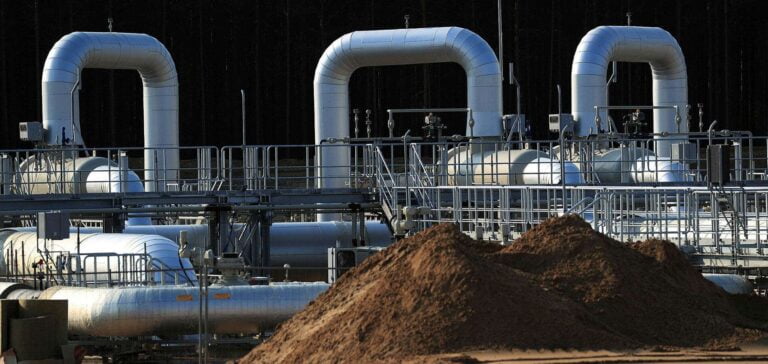Germany imported 4% less gas in the first nine months of 2021 than in 2020.
But its bill rose by 57% due to soaring prices.
Germany pays more for gas to get less
Tight gas supplies have sent prices soaring in Europe and elsewhere.
Further delays in the planned arrival of Russian supplies via the new Nord Stream 2 pipeline have also exacerbated the situation. Electricity and carbon traders are also keeping an eye on imports, as the balance between supply and demand can influence prices.Germany’s imports in 2021 amount to 3,824,499 Terajoules, compared with 3,982,581 TJ in 2020. That’s 4% less. The import bill for the eight months to 2021 is €19.9 billion, compared with €12.7 billion in 2020. The average price paid per TJ over the period thus rose by 64% year-on-year, to 5,213.00 euros.
German stocks only 2/3 full
Germany, Europe’s largest economy, mainly imports gas from Russia, Norway, the Netherlands and Great Britain via pipelines. Ln Monday, German gas stocks (three/four months of annual consumption) represented 68.7% of available storage capacity.
A year ago, the figure was 93%, according to the website of European gas infrastructure group GIE.





















